#Akrisios
Explore tagged Tumblr posts
Photo
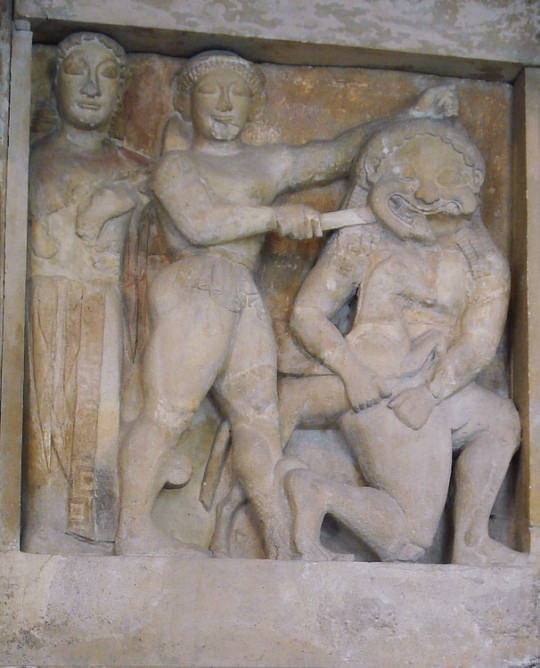
Perseus
Perseus is one of the greatest and oldest pan-Hellenic heroes of Greek mythology. Perseus famously killed the dreaded Medusa, a Gorgon with snakes as hair and whose stare turned men to stone. Perseus also carried out the daring rescue of Princess Andromeda from a monstrous sea creature sent by the god Poseidon to terrorize the kingdom of Ethiopia.
The Son of Zeus
Perseus is perhaps the oldest of the Greek heroes with depictions of his beheading of the Gorgon Medusa being amongst the earliest scenes from mythology appearing in art. Even in mythology, he is believed to have lived three generations before that other great hero Hercules, who was himself one generation before the Trojan War. Perseus' mortal father was Danaos and his mother was Danae, the daughter of Akrisios (or Acrisius), the king of Argos. However, Perseus, as with other Greek heroes, was believed to have had divine parentage, something which helped to explain how they could achieve such fantastic feats of derring-do, providing a link between men and gods and fullfilling their function as role models. In Perseus' case, Zeus was thought to be his real father after the king of the gods himself had slept with Danae when she had been imprisoned by her father. Akrisios had locked up his daughter in an underground prison made of bronze after an oracle had declared that his future grandson would kill him. Of course, this was no barrier to Zeus who entered the cell as a shower of gold rain. Naturally, when the child was born, Akrisios was unwilling to believe Danae's far-fetched story of the golden rain. Suspicious and still mindful of the oracle, he sealed up the mother and child in a wooden chest and had them thrown into the sea. Zeus did not abandon his filial duties, though, and a quiet word with Poseidon ensured sufficiently calm seas, so that the chest washed up safely on the shores of the Aegean island of Seriphos and was found by Diktys, a fisherman who took them in and cared for the castaways.
Continue reading...
75 notes
·
View notes
Text
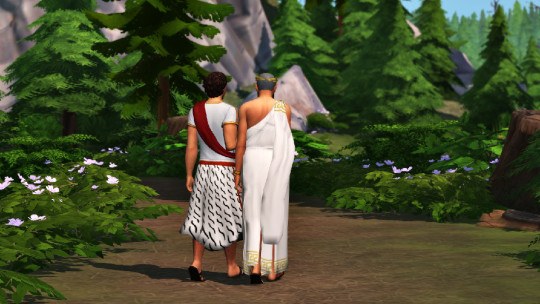

Early next morning the two kings went for a long walk. They both felt this was the best environment for an openhearted discussion.
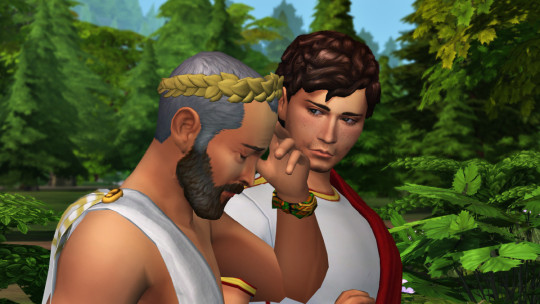
- It's not a small matter you are asking. You are my son-in-law and I want to help you, but I also have to think about our people. A war now is not going to be received well...
- I realize that. I wouldn't ask, if it wasn't exceptionally important, in fact, this threatens the entire existence of Manthos. I understand if you decline. I would be terribly disappointed of course, but I would understand.
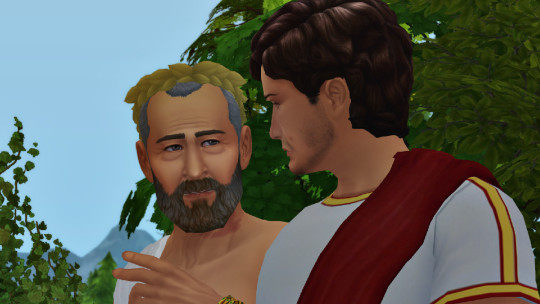
- I believe, like you, that the man should be stopped, I just don't know if it is possible.
- He has a big army, that's true. However, I don't know how loyal they are? He is said to be cruel even with his own men.
- And your sister? What will happen to her?
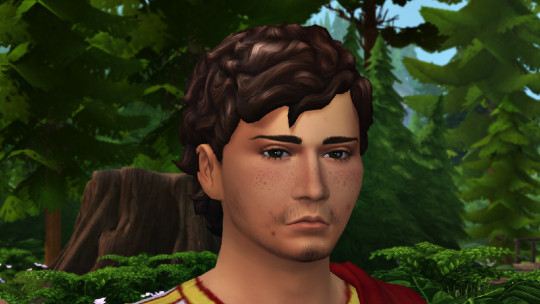
- That is... King Mijararos swallowed, I'm afraid I don't see how it would be possible to get her out alive. We have some spies in Koilada Chalkou, but the king keeps Ofelia very isolated. We will try to warn her, but...
- I'm really sorry, son. I know it could have been Euthalia in her shoes.
- The weddings of Ofelia and Linos was a huge misjudgment from my part. If it wasn't for that we wouldn't be in this mess.
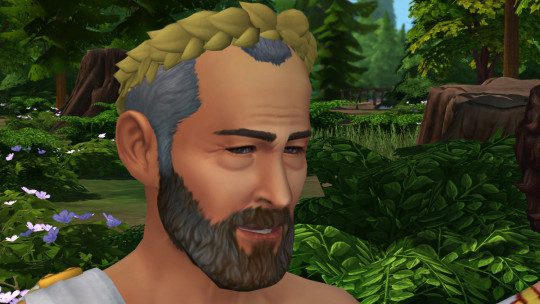
- Well, I wouldn't be so sure about that. Turunusemis have always made trouble, and he always will evidently. If he wasn't fighting with you, he might have harassed us, or Kastanea, or Katafygio. Or all of us. Believe me.
- That might be true.
- I have decided. Let's stop this man once and for all. Or at least let's try.
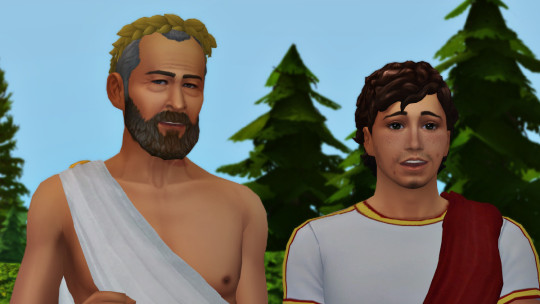
- You don't want to discuss it with your wife? Mijararos was surprised. Or your advisors?
- I don't think I need to. I already know what they think, they would say no. This will probably not be the easiest war to fight. But it is the right thing to do.
- Thank you. I don't know what else to say. You don't know how much this means to me. And Manthos.
- I do. Still, I also do it for myself and the people of Selinódasos. A neighbor like that would probably set fire to us sooner or later. Attack is the best defense.

In Manthos the autumn was also on it's way, but the trees were still green and the temperatures mild. The farmers were pleased this year, because the olives were plenty and chubby. However, there were clouds in the horizon.
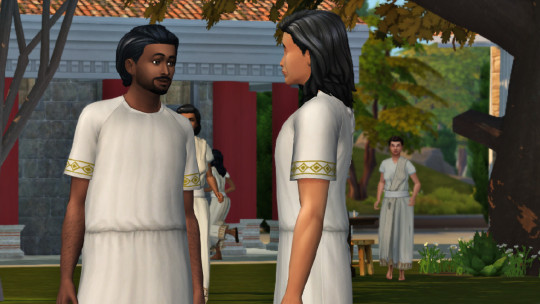
Polykarpos first heard about the new enrollment for the Manthos military at the Lykeion. Everybody talked about it, especially the boys.
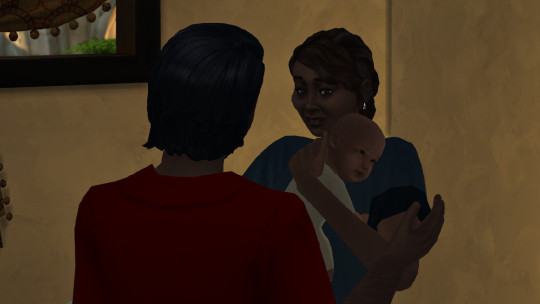
- I feel torn mother, because on the one hand it is dangerous and frightening, but it is also honorable. They say it's just training camp, but why would they enroll, if it wasn't serious?
- I don't know what to say son, because I haven't heard about it until now. For sure war isn't romantic, so I really hope that you won't volunteer? I just remembered the problems with your cousin Pamesijos.
- I won't do anything without you knowing about it mother.

- Good! Shhh shhh shhh! Eira tried to calm down the baby.
- Why is she crying? Isn't she crying a lot?
- Naah, all babies cries, she just don't like it when I stop cradling her.
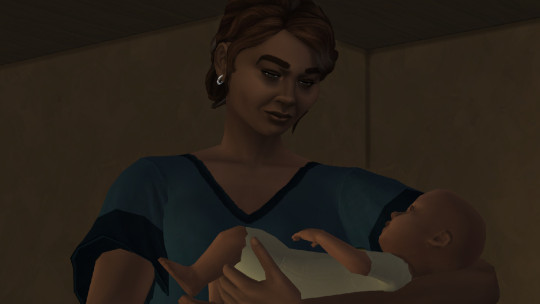
After Polykarpos had left, Eira had a deep frown on her forehead. Now she was worried about the enrollment, but also the baby.
- You really are crying a lot, aren't you? And you are not eating well. Is there something wrong with you moráki mou? Maybe the goddess is punishing me...
.
Previous | Index | Character overview | Next
#KyriaT#KyriaT-stories#Chapter Twelve#ts4 story#sims 4 story#history challenge#ts4 history challenge#Generation 2#Generation 3#Early civilization sims#Early civ sims#Once Upon A Time#The First Ones#King Mijararos#King Akrisios#Polykarpos#Eira#Maya Eláïom#simblr
13 notes
·
View notes
Text



Prince Monachos Akrisios
GENDER - Male
AGE - Toddler
Prince of Selinódasos
ASPIRATION - None
TRAITS: Calm, Independent,
SIGN: Sagittarius
PARENTS - Queen Bisera Akrisiou and King Akrisios I
PARTNER - None
CHILDREN - None
Download: Not available
Story: Once Upon A Time - The first ones
Family tree: The first ones
A cute little boy, overprotected by his mother and mostly ignored by his father. No offense, but isn't that very common?
#Story character#Monachos Akrisios#Prince Monachos Akrisios#Prince of Selinodasos#Generation 3#side character#Once Upon A Time#Early Civilization#chapter 12#KyriaT
0 notes
Text
⚔️ Perseus Worship Guide 🪽

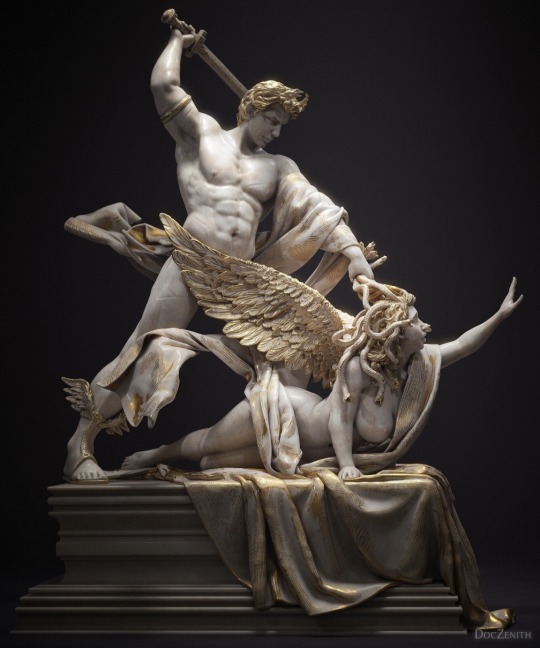
~ Art by DocZenith on ArtStation ~
The great ancient Greek hero, Perseus - a hero so renowned that an entire children's book series was written inspired by him. He accomplished fantastical feats with the very gods themselves rooting for his victory. Many people admire him, but few seem to be aware that worship is not only an option for gods. Heroes, such as Perseus, can be worshipped as well, and have been throughout history. Explore the various ways Perseus can be worshipped in the modern day in the enlightening post that follows.
***I am not an educator or historian. This is solely being made for religious purposes, and I will be touching on UPG.**

°· Who is Perseus? ·°
As stated above, Perseus is an ancient Greek hero starring in his own myths. As a biological son of Zeus (NOT Poseidon) and a mortal woman, trials and troubles were a guarantee in his life. His mother, Danaë, was trapped in a tower before his birth, due to her father, Akrisios', fear of a prophecy that claimed her son would kill him. Despite her predicament, Zeus was able to enter her locked tower, taking the form of a golden rain shower, and Danaë became pregnant with his son (don't ask me, man; I don't know). Her father immediately cast her out upon discovering the child, placing both her and her son, Perseus, into a chest floating on the sea. However, the pair made it safely to the island of Seriphos, being sheltered by the fisherman Diktys, brother to the king of the island, Polydectes. Diktys would also raise Perseus as a father figure.
Perseus would grow to become the eventual slayer of the gorgon Medusa, arguably his most famous accomplishment, as well as the savior of Andromeda, an Ethiopian princess who had been chained to a rock to be fed to a sea monster. He also freed his mother from King Polydectes by turning him to stone with Medusa's head. Perseus' grandfather fled from him in fear, allowing Perseus to assume the throne of his kingdom. Although Perseus didn't purposely kill his grandfather, he was the cause of his grandfather's demise via an accidental discus throw (prophecy fulfilled 🔴).
He later fathered many children. With his lovely wife Andromeda, he had the sons Perses, Alcaeus, Heleus, Mestor, Sthenelus, Electryon, and Cynurus, and two daughters, Gorgophone and Autochthe. He's also said to be an ancestor of the famous Herakles, who is also a demigod son of Zeus. Unlike Herakles, however, there don't seem to be recorded myths of Perseus ascending to godhood, although he was still worshipped as a Greek hero and Founder of Mycanaea.

✿*Well-known myths *✿
His most widespread myth is that of slaying Medusa, which he did in an effort to protect his mother from the cruel King Polydectes, who had fallen in love with her. Perseus believed Polydectes wasn't worthy of his mother's hand in marriage (and he was absolutely right, in my opinion; Polydectes wished to enslave his mother), so as a plot to send Perseus away, Polydectes plotted to send Perseus on the impossible quest of slaying the gorgon Medusa. Before setting out on his journey, Perseus prayed to Zeus, terrified of the challenges that lay ahead, and his father answered by sending Hermes and Athena to deliver five gifts that would aid Perseus' quest. Hermes lent his brother the god's winged sandals and sword, providing him with Haides' helm of invisibility also (though some ancient people seemed to think this wasn't this case and were very opinionated about it lol). Athena lent Perseus her polished shield, able to reflect the gorgon's appearance without petrifying him, and a bag that he could safely store the head in, warning Perseus that Medusa's gaze would still turn others into stone, even in death. The pair then instructed Perseus to seek out the infamous Graia, sisters of the gorgons, to discover Medusa's location.
With cunning and quick-wit, Perseus was able to take the shared eye and tooth between the sisters, and hold them hostage until they revealed Medusa's location. Upon his arrival, he used the reflective shield gifted to him by Athena to avoid looking directly at Medusa, and sword guided by Athena's might, he beheaded the ghastly Gorgon in one swift maneuver of his blade. Her sisters attempted to avenge her, but donning Haides' helm of invisibility, Perseus was able to easily evade capture. After a few other misadventures along the way, he returned to discover that his mother had to flee from Polydectes while he was away, so out of vengeance for the bullshit Polydectes put them both through, Perseus slew him using the severed head of Medusa. A fitting death - that guy was an asshole. As a show of gratitude for sheltering him and his mother, Perseus also made Diktys the new king of Seriphos.
Another of his myths that he's well-known for is that of rescuing Andromeda from her fate. He came across Andromeda after slaying Medusa, on his way home from the adventure. The princess' father, King Cepheus, chained her naked to a rock surrounded by raging oceans and a ravenous sea monster, Cetus. Her father wished to appease Poseidon after his wife angered the God by claiming Andromeda was more beautiful than the Nereids (Sea Nymphs). An Oracle claimed that sacrificing Andromeda to Cetus was the only way to soothe Poseidon's anger. Luckily, using the winged sandals that Hermes gifted him, Perseus flew over the stormy waters to Andromeda and freed her, immediately earning her hand in marriage. Andromeda's original suitor, Phineus, was upset at the marriage, but Perseus turned him to stone with Medusa's head and carried on.
Although these are his most well-known myths, there are still other myths about Perseus that I didn't cover here. Overall, he is a widely recognized Greek hero, known for his quick wit, the love he had for his mother, and the founding of Mycanaea, considered by many ancient Greeks to be the father of all Mycanaea (after making Diktys king of Seriphos, Perseus went on to find the land known as Mycanaea). If you're interested in learning more of his myths (which I highly suggest), my resources will be listed at the end of the post.

·•✷ Sacred Symbols ✷•·
The sacred symbols featured below are pulled from his myths and historical depictions I found of him.
The severed head of Medusa
Swords (particularly sickle-shaped) and shields
Winged sandals/boots and a winged helm
The Helm of Invisibility
Snakes and sea serpents
Treasure chests/chests in general
Raging oceans (due to the Andromeda myth)
Rain made of gold; storm clouds (from his birth)
Discus (basically an ancient Greek frisbee-like thing)
Fishnets and fishing gear (due to his upbringing)
Fountains
A pegasus or horse
Wings (from the sandals and Medusa herself)
An eye and a tooth (from the three hags)
Broken chains/restraints (from Andromeda's rescue)
It's rather disappointing how difficult it is to find information about his worship in ancient times that isn't hidden behind a paywall. That said, I gathered some UPG from worshippers of his who were willing to share! A reminder that the below is based on UPG.
Overcoming challenges/obstacles
Feathers
Spears
Knives/other blade weapons outside of swords
Handcrafted arts and items
Boats/sailing
Mirrors/reflective surfaces
Wind, especially near or on the water
Rainfall on sunny days
The colors blue, lilac, dark gray, and gold
Eels, sea-snakes, and seabirds, especially sea-eagles
Clumps of snakes (resembles Medusa's head)
Freshly bloomed flowers; purple and blue flowers
Plants: lilac, sword lillies (dangerous to cats), peony, red hot poker (especially purples ones), foxgloves, lavender, gingko trees, and cedar trees
Herbs: Lavender, parsley, basil, lemongrass, and bay leaf
Myrrh, frankincense, sandalwood, jasmine, and ocean scents

‹-« Epithets »-›
The following is a list of titles I found for Perseus. Supposedly, they are historically attested, but if I'm going to be honest, I would take it with a grain of salt, as the sources on this were few and far between. I'll also include a short list of purely UPG/modern titles. First, however, is the historically attested list:
Godlike
Gold-begotten (referencing his birth)
Valiant
The Harvester (referencing his role in the births of Pegasus and Chrysaor, who came out of Medusa's neck after her head was cut off ¯\_(ツ)_/¯)
The Horseman
The Warrior Chief (referencing his prowess in battle)
Deliverer of Andromeda (referencing rescue of Andromeda)
Slayer of Medusa/the Gorgo
The Eagle Son of the Golden Sire (referencing his divine lineage and birth, "The Eagle" being Zeus)
Father/Founder/King of Mycanaea (referencing the belief that he founded Mycanaea)
Perseus of Argos (referencing where he resided)
Son of Danaë
Son of Zeus
Now the UPG/modern epithets list:
Chain Breaker/Breaking (referencing rescue of Andromeda and his mother)
Starry-eyed (referencing his constellation)
Starry-footed (referencing his constellation and winged sandals)
Stone-shielded (referencing Medusa's head on the shield)
Wind-swift (referencing his winged sandals)
Courageous/Daring
The Cunning
The Resilient
The Shield-bearer (referencing the shield he uses)
The Unconquerable
The Wayfarer (referencing his many travels)
Brother of the Owl-eyed Warrior (referencing Athena)
Brother of the Silver-tongued Messenger (referencing Hermes)
Son of the Kingly Zeus
Son of the Rich-haired Danaë (based on an epithet of Danaë)
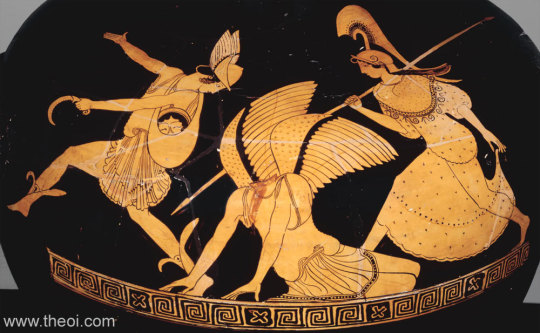
(Image depicts Perseus, Medusa, and Athena)
·✩· Perseus Worship in the Modern Day ·✩·
Within the modern day, worship may seem intimidating if you don't know how to go about it, but thankfully, it's much easier than it may seem. Before I continue, please be aware that there is no one way to worship any Greek entity, be it hero or deity. Worship varies from person to person, even when they worship the same entity, and that's both normal and historically supported. In ancient Greece, worship was different all across the land with some city-states not worshipping entire deities that others did. It's ok if your practice doesn't look exactly the same as someone else's; in fact, it probably shouldn't!
A common way of worshipping any Greek entity in the modern day is creating a custom altar. Some worshippers keep their altars outdoors, preferring for their space to be out in nature, while others keep their altars indoors, preferring their altar to be within the home. Where you keep your altar is entirely up to you, although indoor altars are typically more common due to their accessibility for most people. Being that Perseus is a hero who's traveled far and wide, going on daring adventures for the benefit of others rather than himself, a place to put his altar in the home could be near the door or window - a nod to the various journeys he's embarked on. An outdoor altar for Perseus could be located near a body of water - a nod to both the rescue of Andromeda and his escape to Seriphos with his mother as a young boy. If it's near water, be careful to keep it far enough away that it won't be swept away (make sure to keep flash floods in mind, too). I also don't suggest having anything that could be bad for the earth on an outdoor altar; it could harm the environment, should any of those items be lost.
It's important to note that you don't need an altar to worship an entity. That might be a hot take to some, but I've known many worshippers who either can't have an altar, due to living circumstances, or simply don't want to, due to personal beliefs. Worship however feels correct to you (though I highly suggest still being respectful). Religion and spirituality are very personal, and I encourage you to explore that personal connection. Don't be afraid to do things a little differently!
Many modern altars have a candle, meant to be lit in honor of the entity. If you don't want a candle on your altar, that's ok! Candle scents are typically based on things associated with the entity or things that simply remind the worshipper of them. For Perseus, some potential candle scents could be ocean, storm, rain (UPG after this), lily, lavender, lilac, or sandalwood. Feel free to choose a scent that calls to you, even if it wasn't mentioned!
Most altars have various objects dedicated to the entity they were made for - things that remind you of the entity, depict images of the entity directly, or sacred symbols of the entity. These are called "offerings". Some stay on the altar permanently while others may not - it's entirely up to you what you choose to do with your offerings! When it comes to food offerings, I advise you not to keep them on the altar for too long, since they're often susceptible to perishing. Throw food offerings away or, if they're good for the environment, you can bury them outside. Some people also choose to burn perishable offerings, but I don't personally suggest it if you're not sure what can and can't be safely burned. In the next section below, I'll include a list of modern offerings you can give to Perseus. The list has suggestions; you aren't required to give any of the items mentioned if you don't want to!
Outside of altar worship, you can also do "devotional acts" - actions you do in honor of Perseus and with him in mind. In order to make an entity aware that I'm about to do a devotional act, I usually pray to them beforehand or declare aloud that I'm about to do something for them. Daily activities, that you would've done anyway, are also ok to dedicate to an entity; devotional acts don't have to be something you go super out of your way to do if you don't have time or energy for that. Involving entities in your daily activities is actually a great way of welcoming their presence directly into your life and can help with bonding. Two sections down is a list of devotional acts you're welcome to try. Just as the offerings I mention aren't required, neither are the devotional acts.
When in need of communicating with Perseus, I suggest utilizing divination, prayers, meditations, or journaling. There are other ways of communicating with entities, but these are the most common that I see. Regarding divination, there are near endless methods of divination you can try, from tarot cards to pendulums to a normal deck of playing cards. Although prayer is likely one of the most direct ways to communicate, divination typically allows you to have a back and forth conversation, to some extent, which is partially why so many people engage with it. If you're unfamiliar with any divination, I'd recommend trying whichever method calls you the most and practicing often to develop a skill with it. Divination can take a lot of practice, but that's not a bad thing; everyone starts somewhere! If you're unsure how to pray, the following link leads to some suggestions. If you can't meditate, no sweat; it's not required! Meditation can be useful for some when trying to connect with an entity's energy, but for others, it's not helpful at all, and that's ok. For journaling, you can simply write to Perseus as if you're writing in a diary or write him stylized letters. Maybe keep your journal on his altar as well!
At first, it may be difficult to determine when Perseus has responded to something you've prayed for or communicated about. A few ways an entity might make their answer known are through dreams, conversations/words you overhear, frequently spotting their sacred symbols (animals included), having a flash of a relevant image in your mind, strong gut feelings to do/say something specific, sensing another presence with you, and, of course, communicating through divination. There are many, many other ways an entity might express their answer to you, but these are a few I see fairly commonly within the Hellenic Polytheist and Pagan communities. If you struggle telling when you've received a sign versus when you're just overthinking it, this link can lend a helpful hand in being able to tell. I also personally use the rule of three: once is noticeable 🤔, twice is a coincidence 🤨, and thrice is a certainty 🧐.
-
·✩· What is Perseus Like in Worship (UPG)? ·✩·
This is SOLELY based on UPG and SPG that I've gathered through various means. Out of respect, I will not be @ing the individuals who provided this information, unless they ask me to do so. Be aware that no one can definitively speak for the gods, heroes, or any other entity; everyone's experience with them will vary, even in seemingly small ways. Do not expect your experience to mimic the following experiences exactly.
I decided to gather people's experiences with Perseus in worship to hopefully provide a better feel for what Perseus may be like. I'll be numbering the experiences I was told of because each situation was expressly unique enough that separating them will be useful. Each experience will begin with two adjectives outlining the main point of the experience, as some of these individuals intentionally worship specific aspects of Perseus. Although your experience may vary, here are some things you may encounter with him:
⚔️ Young and Rebellious. 💥 This person told me that they explicitly worship a younger aspect of Perseus, before he became a king. They described him as spirited, determined, and bold. He encouraged standing up for oneself and others, and dislikes figures of authority. The way he was described reminds me of a typical "rebellious teen" stereotype (this is not an insult, just something I found interesting, as my experience strongly differed). He seemed to have more of a hands-on approach to lessons and problems, but that wasn't discussed further.
🐎 Humble and Kind. 🧡 This person only interacted with Perseus through their partner, but every time they did, they described him as being very modest and respectful. Despite his later status as a king, he seemed to regard everyone as an equal and tended to be very patient as well. This person stated that their partner said Perseus still knew how and when to put his foot down and often tried to pass that lesson along, since assertiveness was a struggle for their partner. Perseus was described as being a gentle guide as well, preferring for their partner to come to their own conclusions but still assisting them along the journey.
🪽 Swift and Smart. 🛡️ This person described Perseus as being kind and respectful, but being blunt when it was needed. He fully embraced both cunning and wit, and encouraged this person to solve problems by thinking outside of the box. Rather than giving away solutions immediately, he would prefer to let this person think through a situation. He aided a lot with thinking on their feet as well as asserting themselves in subtle yet effective ways. Something that remained consistent with the last experience was his hands-off approach to solving problems, preferring the person to listen to themselves first and foremost.
✨ My Experience. ✨ I do not worship Perseus, but a few times throughout the creation of this post, I felt his energy nearby. In my experience, he was very quiet, patient, and respectful. He respected my boundaries and seemingly regarded me as an equal. His modesty was striking, but despite this, he was still well aware of his talents. He was extremely clever and intelligent, and in some ways, he reminded me of an owl who observes his surroundings fully before he acts. He still made a point to assert himself when needed, however, and would jump in the moment he felt it necessary. Interestingly, he had a very hands-off approach to this post. When he did help, it was much appreciated, though. He was very different from other heroes I've interacted with, and overall, I enjoyed his company. c:

✧ ⟨Offerings ⟩✧
The following is a list of offerings you can give to Perseus as a show of worship. They're simply suggestions; you don't have to use them if you don't want to!
Decorated chests/boxes (maybe even keep his altar in a chest)
A candle that reminds you of him
Frankincense, myrrh, sandalwood, or any other incense that reminds you of him
Sword and shield imagery
Imagery of a pegasus or horse
Imagery of Medusa's head; imagery of the Aegis (Athena's shield that she affixes Medusa's head to)
Feathers (for his winged sandals)
Snake and sea serpent imagery; a stuffed animal snake or sea serpent
Ethically sourced snake skulls, especially sea snakes; ethically sourced snake shed
Imagery of a raging ocean; imagery of rain made of gold
Seashells
Fishnets/fishing gear
Ethically sourced fish bones/shark teeth
Breaking/broken chains imagery; broken handcuffs
Gifts from your mom or a mother figure in your life to you (it's ok if you don't have anything)
Jewelry that reminds you of him
Water-based gems/crystals
Art/depictions of him and his ventures
Imagery of spears (as an acknowledgement of Athena and her aid)
Imagery of winged sandals (as an acknowledgement of Hermes and his aid)
Encouraging affirmations about pushing through, defying expectations, and overcoming obstacles
Fountain imagery
A mask of Medusa's face
Eye and tooth imagery; ethically sourced animal teeth (you can use human teeth, but I personally wouldn't)
Family heirlooms passed down from maternal (or parental) figures
Lost trinkets found at the beach/lakeshore
Imagery of an ancient Greek helm/the helm of invisibility
Toys/items from your childhood that mean a lot to you
Mirrors/reflective surfaces
Replica sail boats/toy boats
Flowers, leaves, or herbs that remind you of him
White wine with a bit of honey
Warm herbal tea with honey
A glass of water (or salt/sea water)
Energizing drinks - coffee, certain teas, energy shakes, protein shakes, etc.
Energizing foods - nuts, trail mix, vegetables, oatmeal, eggs, bananas, etc.
Breads, pastries, grains with honey, natural honey, tasty candies, fresh fruits, fish, or something you made by hand for Perseus specifically

。◉* Devotional Acts *◉ 。
The following is a list of devotional activities you can do in honor of Perseus. These are just suggestions; you don't have to do them if you don't want to!
Learn how to swim; go swimming
Go sailing, kayaking, paddle boarding; engage in water-related activities
Play frisbee with friends or pets
Go fishing (legally, please)
Be kind to/encourage yourself when going through a difficult time
Make a list of things you've overcome; acknowledge your accomplishments, no matter how small they seem
Learn how to ride a horse; go horse-back riding
Stay hydrated; drink water
Try eating a healthy diet or meal if possible
Try exercising; do some movement throughout your day
Spend time with a maternal figure in your life or with a mother you know (for example, a friend or sibling who became a mom)
Be kind to children; spend time with the kids in your life
Watch a comforting movie/show from your childhood
Learn about self-defense; carry self-defense items (knives, pepper spray, etc.)
If you have a personal mirror, decorate it with things you love or positive self-affirmations
Create a playlist of songs that remind you of him; listen to the playlist whenever you want c:
Create a Pinterest board for him; save pins that remind you of him
Play strategy games, competitive or not
Learn how to wield a sword; swords are objectively cool
Visit any local fountains (not a drinking fountain, but the kind that people throw coins in)
Offer someone a helping hand; engage in random acts of kindness
Send your loved ones a kind message; maybe tell them you love them, wish them a good day, or encourage them
Stand up for others, especially if you witness a wrong done against them
Attend protests that stand against corrupt governments/politicians
Support children-focused, anti-domestic abuse, young/single mothers, or international relief organizations
Support ocean conservation efforts
Donate children's and hygiene supplies to homeless shelters; hygiene kits, toys, child socks/shoes, child clothes, baby food, diapers, etc.
Pick up trash around bodies of water
Sing/dance to songs the empower you, lift you up, or encourage you to keep moving forward
Make a list of things you're proud of; even getting out of bed can be a point of pride
Light a candle in his honor; burn incense in his honor
Plant/care for flowers or other plants that remind you of him
Create something for him - a painting, drawing, piece of digital art, wood carving, crochet project, song, short story, collage, etc.
Take a salt bath (with bath salts specifically!!!!)
Engage in a mental challenging/stimulating activities

•★ Conclusion ★•
To cover every piece of information about Perseus that exists would be a difficult task, and one that would likely take years of hard work. I hope this can at least be a starting point for any prospective worshippers and can offer a more condensed view of who exactly Perseus is. It can be challenging finding a place to start, but once you take your first step, you're already well on your way. I wish you, the reader, luck in your future ventures. May Perseus walk beside you, if you wish him to. Take care.
-
-
-
Sources:
Theoi.com's entry on Perseus
Tufts University sources on the Medusa myth
History Cooperative's informed article on Perseus
Cults and Rites in Ancient Greece by Michael H. Jameson
Gods and Heroes - Perseus by Daniel Ogden
UPG was gathered from unnamed individuals, as well as my own very brief experiences with Perseus
#helpol#hellenic polytheism#hellenic pagan#hero worship#perseus#perseus worship#paid for by a generous donor ❤️#paganblr#hellenic polytheist
64 notes
·
View notes
Note
Long post so not sure wheter or not you will read it, but there's a retelling of the myth of Perseus for kids by Imme Dros: De huiveringwekkende mythe van Perseu. The book is in german, so I will point put some bits from it that I liked and some rough translations of the fragments by me.
1) Here it's said that Acrisius thought Perseus is the son of his twin brother, not of Zeus. This is the first time for me when I see a book aimed for kids about Perseus that mentions Proteus too. Also, it is mentioned that Acrisius imprisoned Danaë back when she was only 13.
"King Akrisios heard him crying under his feet. Furious, he had Danaë taken from her prison.
'Who is that child? Whose child is that and who is the father?'
'This is Perseus, I am his mother and Zeus is his father.'
'Zeus the father? You must mean my twin brother. Of course he seduced you. To take my land! He is not satisfied with his own area, he wants everything. He has sons and now he is also claiming my grandson.'
(King Akrisios and his brother were born fighting, already fought in their mother's womb, already hated each other before they saw the light and they didn't trust each other for a fathom.)"
2) Danaë wants to educate child Perseus, but all he thinks about is fishing. She wants him to know about the gods, to which Perseus tells her that the only god he has to know about is Poseidon. Danaë then tells him that he will be the King of Argos one day so he must know about the gods too. Little Perseus's favorite god is Hermes, so he constantly asks his mom to tell him more about him:
"Diktys taught young Perseus all about ships, sails and oars and everything he needed to know about water, wind and current to become a decent fisherman. Danaë wanted to teach him everything about the gods. Perseus had no patience for that. He protested:
'I go to sea and I only need to know Poseidon, that is the god of the sea, that is the god of fishermen.'
'But you will not remain a fisherman, Perseus. You will be a king! King of Argos. Kings should know the gods.'
'Well, then tell me the adventures of Hermes. Hermes is also a god and he always wins, that's exciting,' Perseus demanded, but his mother kept trying.
'Soon from Hermes. Listen now, Perseus. First there was Chaos. Everything came from Chaos... Say, are you listening, Perseus?'
'Yes, I hear it. But now from Hermes. Now from Hermes again.'
'Soon from Hermes. This is important. You need to know this. Everything comes from the great, fierce, dark Chaos...'
3) When Polydectes saw Danaë for the first time he thought she's Artemis and started to worship her for a moment:
"A powerful king ruled on the island of Serifos who oppressed and sucked his people, Polydectes. He was Diktys' brother and just as bad as he was good. About the time Perseus became a man came Polydectes meets the lovely Danaë during a hunt through the forest. At first he thought she was Artemis, the goddess of hunters, and he fell down before her. When he noticed she was human, he demanded that she become his lawful wife. Danaë didn't want to."
4) At the beginning of his journey Perseus arrives for the first time in Athens, where he starts crying because of how beautiful the city was:
"Who stood shouting loudly in the middle of Athens could just reach a man near the walls with his voice. So the city was not allowed to get any bigger, that would be a danger. Perseus cried his eyes out. What a square, what houses, what a beautiful temple, what a mighty theater. That such a thing could exist. And oh, what people. He would get an answer to his question here, that was certain. But in the busy market of Athens no one could help him.
'Did you say Gorgons?'
'Gorgons? No, I wouldn't know.'
'No, you shouldn't be with us.'
'Go ask that in Delfi. Everyone goes there and that's why it must be good. Anyone who has a question and wants an answer always goes to Delfi.'
'Delfi, go to Delfi.'
5) They go by the version where Medusa was a beautiful mortal woman once. The difference is that here she willingly has sex with Poseidon in Athena's temple, and when she asks her how dare she do such thing Medusa tells her that Poseidon loves her and wants to marry her and she will soon become her aunt, so she should be nice with her from now on. This is the moments when Athena gets angry and turns her into a gorgon.
"[Medusa] made no apologies and bragged about her affair.
'If Poseidon marries me then I will be your aunt, Athena. He has more power than you, so don't worry about that temple.'
Pride comes before a fall, let people realize this very well! No matter how one excels, modesty is always required. They will never become gods, they just don't want to understand that. [...] A single bad trait can undo all the good that a mortal received. Gods hate pride and it was for her pride that Medusa had to pay, even though she was a nymph and the daughter of Forkys, the sea god."
6) We get to see the moments where Athena teaches Perseus how to fight while looking and his shield, whereas Hermes teaches him how to fly with those sandals:
"With the shield in her hands, Athena came to Perseus and she said to him, the goddess with the sea-green eyes:
'Never look directly at a Gorgon, look into this shield and look for her image, just remember that the right is the left in it.'
Perseus practiced diligently for the battle with Medusa, aimed in the shining shield at trees and rocks. Hard enough, it took him days to hit anything. He also had to learn to fly. With trial and error. Hermes held his hand and it took a while before he managed to keep his balance during take off and descent, before it flew straight and could make a quick turn. Flying seemed so easy when you saw birds flying,
but Perseus would never become a swift or a seagull. When he became more confident in floating and not every nymph anymore was crooked with laughter as he sailed past, Hermes announced that it was time to leave. And the merry nymphs wept loudly at parting."
7) The Perseus and Andromeda moments are sweet but cute. Also, here Andromeda and her family live in Joppa:
"Now Joppa was in charge because Perseus demanded the bride, but the man with the oldest rights came with an army.
To make a long story short: Medusa's head
served well again because every enemy petrified. Perseus and Andromeda were married that same day. He loved her and she loved him so they were happy The celebration of the great wedding in Joppa lasted ten days."
"King Cepheus made the cupbearer go round again, then each guest left for his own house to sleep. But the king slept in the palace next to Kasiopeia, and Andromeda shared her bed with her bridegroom Perseus."
8) Perseus also traveled in the Underworld before arriving in Joppa. At his wedding he tells the quest about what he saw in the realm of Hades and even tells the myth of the seasons at one point for some reason (but I won't include it as well because it's too long):
"Nowhere is the water as deep as where the water is separates the living from the dead. Five rivers flow between us and the poor, unfortunate shadows. When I looked at the grave lily meadows it seemed as if I
just like the Gorgons looked into a mirrored shield, but outside that shield was none of what was reflected. I saw the
images of people, but the people themselves were nowhere. And I saw those shadows of people nowhere present stagger across the meadows and report to the entrance where the Dog sat. He let the shadows pass, but when one wanted to go out he shook his three heads. Whether they were old, whether they were young, inside was inside. There in the depths Haides and Persefoneia rule."
"On the edge of Tartaros, that is the deepest depth, houses the goddesses of revenge, who continue to persecute people if they have committed crimes. Their faces and claws, horrible to see, something I will never be able to forget. The Harpies are also monstrously ugly, fast as the storm wind they fly about to torment the dead, to provoke the people. They have heads like women, bodies and wings like birds, claws like tigers. When a man has insulted a god come the cruel Harpies. They pollute his food, shit on his plate and piss in his cup.
Until he dies of hunger at crowded, smelly tables. And I saw Sleep and his brother Death far away walking at the gates where all dreams come through."
"...daughters of my father Danaus, bear water to a great and bottomless barrel in leaking jars.These women killed their husbands the night after the wedding day. When I saw the poor shadows dragging the leaky jars my eyes became blind with tears, I couldn't bear it. And I became afraid of everything that could happen to myself. Suddenly I wanted to leave and I would prefer to forget everything what I saw there under the dark earth."
9) There's a short moment where, turning back to Argos, Danaë visits the chamber where she was imprisoned years ago:
"King Akrisios heard the news and his bad conscience drove him away from Argos to a city in the north. He had friends there in Larissa, he was safe there. So when Perseus arrived with his wife and his mother, he found in Argos an empty palace and no one could say where old king Akrisios had gone, whether he was alive or perhaps dead and under the earth. Danaë showed her son the underground dungeon,
dark and gloomy with bronze doors and no windows. And she visited the places where she had played as a girl. When they were on the beach of the sea just like a long time ago laid flowers of pebbles, she cried bitter tears. Because her life had turned out differently than she had hoped."
Why are all the interesting Perseus adaptations not available in English?
#greek mythology#ancient greek mythology#greek pantheon#perseus#andromeda#Athena#Medusa#Danae#Danaë#Acrisius
34 notes
·
View notes
Text
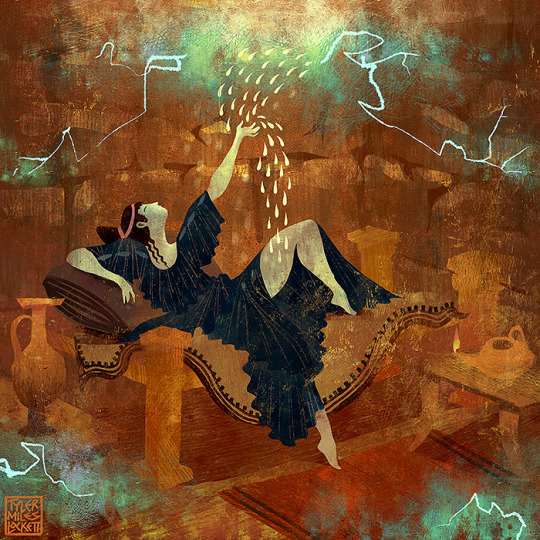
The Seduction of Danae, (#1 in my "Quest for the Gorgon Head" series)
King Akrisios of Argos receives an ominous warning from the oracle that his daughter, Danae, will give birth to a child that will slay the king. These pesky father slaying prophecies pop up again and again in Greek myth; Cronus being overthrown by his son (Zeus) and Zeus in turn being overthrown by his offspring with Metis.
So what does our King Akriosis do with his daughter? Well, he imprisons her into an underground Bronze chamber of course! keeping her and her womb far from any pesky suitor's libidos. But Zeus, visits Danae, and morphs into a gaseous cloud, penetrating into the cracks of the chamber, seducing Danae with warmth and wonder, pouring his favor upon her in the form of a golden rain. The symbolism is clear here, as rain fertilizing crops is standard symbolism for intercourse in Greek erotic poetry.
There is much debate through a modern lens at Zeus's conquests; is he raping or seducing? Well, He, and many other gods, do both. In certain tales, they seduce the willing, and in others, they rape the unwilling. With Danae, it was left open to my artistic interpretation. I decided that Danae, having been chained in a bronze dungeon cell by her own father, in her isolation and confinement, welcomes the deity and a child into her womb as a miracle. But when Danae gives birth to her son, a little boy she names Perseus, the King has a cruel plan for them both.
Like this art? It will be in my illustrated book with over 130 other full page illustrations coming in June to kickstarter. to get unseen free hi-hes art subscribe to my email newsletter
Follow my backerkit kickstarter notification page.
Thank you for supporting independent artists! 🤘❤️🏛😁
#greekmythology#greekgods#pjo#mythology#classics#classicscommunity#myths#ancientgreece#classicliterature#classicnovels#tylermileslockett
62 notes
·
View notes
Text
Prophecies in Greek myth is interesting, I think.
Like, real-world-wise, the oracles around the Greco-Roman world were known for their ambiguous/riddling utterings and such. Understandably so, since something more carefully and ambiguously phrased can be taken in several ways.
Myth-wise, though, mostly there are no riddles, no ambiguity.
Not even in a "we as audience know, but the characters don't"; the prophecies of the myths are usually quite straightforward.
Katreus, Akrisios and Laios are all variously told, in plain language, that "one of your children will kill you" (Katreus), "your grandson will kill you" (Akrisios), and "your son will kill you" (Laios). There is no mystery here, and this is exactly what eventually happens. Even if accidentally and unknowing from each prophecied killer in turn.
Even Oidipous is not told a riddle!
He's told "you will kill your father and sleep with/marry your mother".
The problem isn't that this is a riddle. The problem is that he doesn't know to ask more, and the oracle of Delphi probably doesn't know either, that Oidipous' assumption of who his parents are is wrong. Getting told this he immediately plans and executes a way to attempt to avoid this. And even if he'd known to ask - he kills Laios, on the way back from Delphi, removed from the cities either of them live in. And hell, Thyestes, going to ask how he might have revenge on Atreus, gets told to assault his own daughter, because the son she will give birth to will eventually give him his revenge. And he does do this, and Aigisthos eventually does exactly as promised/prophecied. Thyestes misunderstands nothing, and the prophecy given is plain and correctly understood.
In some cases, the "prophet" isn't getting any divinely-given information; he or she is merely talking or listening to nearby animals, whose speech they have been given to understand. This happens a lot for/with Melampos, for example.
One of the closest instances to actual riddling ambiguity is the death of Minos' son Glaukos, and even here the riddle varies: In Fabula 136 it's phrased like this: "A prodigy has been born for you. Whoever explains it will restore the child to you." and Minos needs to have it interpreted to even find what this prodigy is in the first place. But in the Bibliotheke it's phrased like this: "The Curetes told him that in his herds he had a cow of three different colors, and that the man who could best describe that cow's color would also restore his son to him alive." Which skips the ambiguity of what even the "prodigy" is, putting it plain what it is that needs to be described. The "riddle" is more in how the "correct" oracle describes the cow.
And then we have Helenos and his being told, in some form, of actual divine conversations. What exactly he's told of Athena and Apollo's conversation in Book 7 given what he relays to Hektor is not clear, but the conversation is the jumping-off point of his "oracular" pronouncement to his brother.
Dream and bird omens are by their form less literal and need to be interpreted, of course, but in terms of direct oracular statements from someone with mantic powers in reply to a question asked, there's very seldom any riddles happening. Apollo is usually giving you what you asked for very straightly!
(Which leads to the potential to make Kassandra's curse as one where she can only speak in confusing, ambiguous and riddling prophecies, even if she knows exactly what it is she's saying...)
9 notes
·
View notes
Text
There is a Klymene daughter of Okeanos, consort of Iapetos and mother of Prometheus, a Klymene daughter of Okeanos, consort of Helios and mother of Phaethon; a Klymene daughter of Nereus; a Klymene daughter of Minyas, wife of Kephalos and mother of Iphiklos; a Klymene daughter of Katreus; there are about half a dozen more ladies named Klymene.
There is an Aglaia daughter of Zeus and wife of Hephaistos, an Aglaia daughter of Mantineus and mother of Akrisios and Proitos by Abas; an Aglaia consort of Charops and mother of Nireus; there are several other ladies named Aglaia.
There is the Themis daughter of Gaia and Ouranos, consort of Zeus and mother of the Seasons; there is also a local Arcadian nymph called Themis by the Greeks and Carmenta. by the Romans, mother of Evander and consort of Hermes.
There is the Thetis daughter of Nereus and mother of Achilles; there is also Melanippe the daughter of Cheiron whose original name was Thetis
Therefore, just because in Plato's Symposium the mother of Poros is named Metis doesn't have to mean she is the same goddess whose son, if conceived, was to become king of gods and men. Metis is also one of the many names attributed to the mother of Homer: "As for his [Homer's] mother, she is variously called Metis, Cretheis, Themista, and Eugnetho. Others say she was an Ithacan woman sold as a slave by the Phoenicians; other, Calliope the Muse; others again Polycasta, the daughter of Nestor." (The Contest of Homer and Hesiod) Metis is literally a word that describes a particular form of intelligence, so it lends itself well to allegorical genealogies such as these.
12 notes
·
View notes
Text
~~~~~Medusa~~~~~
~~~A Sea Deity~~~
~~Origin~~Ancient Greece
~~Dominion~~Wisdom, Feminine Blood Mysteries, Sexuality, Protecting.
~~Symbols~~Snakes, green, black & red, Hematite (Bloodstone).
~~Tarot Card~~Death, Queen of Swords
~~Workings~~Administer justice, protection, banishing, beauty, transformation, aiding in divination, awakening sexuality.
~~Other Titles~~Ruler of the Sea, The Ruler
~~Offerings~~Serpent figurines or images, snake skin, blood, red wine, coral ornaments (avoid buying real coral as it is endangered), sea water, sea salt, driftwood, green or black candles.
~~~Significant Dates~~~
~~Dark Moon: A potent time to tap into inner knowing.
~~Waning Moon: Associated with banishing and destruction.
~~Night Time / Darkness
~~~Medusa~~Who is she??~~~
A Serpent haired Gorgon whose gaze turned men to stone
Medusa was a Gorgon, a creature described as having a scaly head, protruding eyes and tusks. The introduction of the iconic serpentine hair wasn't introduced until much later. Medusa's parents descended from the primordial Greek earth Goddess Gaia, and Pontus, the personification of the sea. Phorkys, her father was called by ancient poet Homer 'The Old Man of the Sea' while her mother Keto was described as a sea monster. Their union produced monstrous triplets Stheno, Euryale and Medusa. These Gorgon sisters were hideous; to gaze upon them would petrify a person to death. The word Gorgon derives its meaning from the Greek word 'Gorgo', meaning 'grim one'. However, of these sisters Medusa was the only mortal. It could be inferred that Medusa's mortality gave her a human appearance in contrast to her frightening sisters. As we piece together the fragments of Greek mythology, we see discrepancies and variations like this. Ovid, the Roman writer described Medusa as a great beauty stripped of her charms in a vengeful curse from the Goddess Athena. He tells us that Medusa was raped by Poseidon at Athena's temple; in what seems an unreasonable act of retribution, Medusa is punished for the actions of another.
Although Medusa has a divine bloodline, she was not worshipped as a deity within Greek tradition but rather feared as a villain. Her main myth pertains to her death at the hands of Zeus's demigod son Perseus and is preserved in the writings of Homer and Ovid. In the ancient city of Argos, King Akrisios receives a prophecy that his death will be at the hands of the child birthed by his daughter Danae. The King tries to cheat his fate by locking Danae away so that she may never take a lover. No mortal prison can deter a God though, and Zeus soon enters Danae's chamber as a shower of gold. This unusual encounter leaves Danae pregnant. Unable to kill her, but happy to exile her to almost certain doom, King Akrisios locks Danae in a trunk and sends her adrift on the open water. Miraculously, mother and newborn son Perseus wash up alive and well on the shores of Seriphos where they are taken in by King Polydektes. Over the years, the relationship between Perseus and the King sours as Polydektes tries to force Danae to marry him. When the King eventually takes another to be his bride, Perseus promises the King the head of Medusa as a wedding gift. Goddess Athena, perhaps still holding a grudge against Medusa, aids Perseus on his quest. Athena explains that he must only look upon Medusa through a mirror, so that her gaze can't turn him to petrified stone. Perseus acquires an unbreakable sickle, Hades cap of invisibility, winged sandals and a shield polished to a mirror shine then sets off on his quest. Upon arrival, Perseus finds Medusa and her sisters slumbering in a jumble of bones and petrified bodies. Swiftly he decapitates the sleeping Gorgon and places her head in a sack. From her spilt blood, Pegasus the winged horse and Chrysaor are born, presumably fathered by Poseidon. Medusa's blood is said to have potent healing properties; Athena later gifts a vial of this blood to the healer Asclepius. Perseus carries Medusa's head with him, using it to turn his enemies to stone. Eventually he gives it to Athena, who places it upon her shield.
Alternative myths suggest that the once beautiful Medusa was a priestess of the virgin goddess Athena. Medusa was proud of her beauty, her flowing hair her most glorious feature. Poseidon, God of the Sea was enraptured by her, but she rejected all of his advances. Not to be denied, Poseidon took Medusa by force at the temple of Athena, desecrating a sacred place and robbing Medusa of her dignity. In anger, Athena punished Medusa by transforming her magnificent hair into living snakes. It seems unjust that Medusa paid the price for Poseidon's crime. However, some have reinterpreted the myth to infer that this curse was in fact a gift, intended so that Medusa would never be vulnerable again.
Medusa is strongly associated with the spiritual wisdom of serpentine energy, a recurring motif in human history. Dwelling in cracks and fissures beneath the earth, the snake is seen as an Underworld creature. A keeper of hidden knowledge, an emblem of creative and sexual energy. The shedding of its skin is a perfect metaphor for transformation and healing, stepping out of the old to emerge renewed and reborn. In this way, the serpent represents death as much as it symbolizes rebirth; its venomous fangs making it a fearsome predator.
In the myths of earlier cultures such as the Sumarian people of ancient Mesopotamia, the snake God Zu was a benevolent deity linked with fertility. Over time, the snake came to be vilified as evil and treacherous as can be seen with Eve's encounter in the Garden of Eden. This vilification can be viewed in Medusa's myth; punished for Poseidon's transgressions then hunted and beheaded as a trophy.
Coral was said to be the petrified blood of Medusa that had spilled into the sea
Greek myth portrayed the Goddess as the archetype of the 'devouring mother', a dark aspect of the feminine psyche that consumes and destroys. In spite of this, Medusa teaches us to own this shadow. No part of us should be denied, no matter how displeasing it may look at times, for it is necessary to have a fierce side if we are to protect our personal boundaries. If this dark aspect can be harnessed for empowerment and protection then it is valuable and worthy.
Medusa has experienced a revival as a patron of abuse survivors; she can be seen as a protectress of the vulnerable and called upon in defensive or banishment workings. She represents the unfairly demonized and avenges those who were denied justice.
Feminine sexuality, along with any sexuality not considered mainstream, has been repressed in the past, forced to conceal itself in shadow as something unsightly like the serpentine Goddess herself. For all that, Medusa encourages us to own our sexuality, to embrace the Kundalini energy so that we can release the creative, regenerative spirit that lies within us. She calls us to tap into our inner knowing, trusting the innate wisdom of our intuition. Medusa helps to heal our insecurities and embrace every aspect of ourselves. She asks us not to be afraid of disapproval, encouraging us to show our true face to the world.
~~~Devotion to Medusa~~~
Blessed is she with serpentine hair,
Immobilise foes with a deathly stare,
Your dark wisdom is misunderstood,
Embracing the shadow can be for the good,
Spirit of sea, the divine protector,
Beauty transformed to a frightening spectre,
Guardian to all that are shunned and rejected,
Returning the energy that's merely reflected.
Blessed Be!
7 notes
·
View notes
Text
Refurbished Warriors OC's
Refurbished Warriors will have some OC's here and there. This is only to make the family trees less related going into the TPB Arc at least. And that shall be something to strive for going forward with any of the Arc's. Bloomtail is an OC and his mate is Vineleaf another OC. Together their kits are the canon cats Patchkit and Leopardkit. They have an added littermate, Ravenkit who is an OC. They also have a foster sibling in Snakekit who is also an OC. Snakekit's parents will be revealed in Bluestar's Battle. Batpaw and Mistypaw are OC's. They are the kits of the unnamed as yet brother if Smallear and an unnamed she-cat. The unnamed she-cat's family has loner's in it going back three generations before them. Smallear and his brothers family goes back to loner's around that time too. This helps to reduce how closely related the cats are as Batpaw and Mistypaw's parents share no blood ties save for their descendants. Although I imagine that any cat joining might have been seen with some suspicion, but if there was a huge famine and the clans were teeny tiny I imagine they might be more welcoming... but only in times where they had very few cats. Vineleaf is an OC. Instead of having Swiftbreeze and Adderfang as the parents of Patchkit and Leopardkit, Vineleaf and her mate Bloomtail are their parents. Violetclaw is an OC and her mate is Finchflight. In the case of Finchflight things get a little bit confusing. But they'll have a descendent one day named Finchfeather who should be the mate of Dawncloud, though that could change as it's not all set in stone yet. With Finchflight, Violetclaw has a single kit, Galekit. Acornpatch is an OC. She is the mother of Littlebird and Silverflame. Briarclaw is an OC. She was supposed to be a deputy of ShadowClan sometime in the past, but I'm not sure if I can squeeze that tidbit in or not. But she stepped down and/or retired so never became leader. She is the mother of Cedarstar.
Morningpetal is kind of an OC and yet not. I divided Morningflower into two cats. Morningpetal is Morningflower's paternal grandmother. Morningpetal's mate is Quietnight. Together they have a son named Jackdawswoop. Wildburn is an OC as is his mate Shadeclaw. Together the pair have two daughters, Tansykit and Tormentilkit who are also OC's Pipitcloud is an OC as is her mate Spottedmoth. Together they have a single kit, their son Arguskit, another OC, who is named after an Argus Moth. Moorstripe is an OC as is her mate Lightningcloud. They currently have two daughters, Daisypaw and Irispaw both of whom are also OC's. Twitewing is an OC and their mate Jackdawswoop is also an OC. Together they have no kits yet, but will have Morningflower sometime either during or after Bluestar's Battle. Fawnshy is an OC and mates with another OC, Creekminnow. Together they have Brambleberry, Timberfur, and Ripplekit. Snailcliff an OC and his mate Pondlily another OC have Brightkit, Shimmerkit, and Owlkit. Quailthorn an OC and his mate Lavenderclaw another OC have Pikekit and Applekit another OC. Egretkit an OC is the littermate of Volekit and thus the daughter of Hailstar and Echomist. Petalkit and Beetlekit are foster-kits. Dustkit is an OC, the littermate of Mudkit and the daughter of Ottersplash and her mate Timberfur. Lilystem and Shellheart are the parents of Crookedkit and Oakkit. Why Crookedkit has that name will be revealed in Refurbished Warriors at some point. In this Rainflower is Lilystem's littermate. Their brother is Hailstar who may also be a littermate. I debated on Hailstar being their father, but ultimately went for a trio of siblings.
Akrisios is an OC and the father of Danae another OC. I may or may not post more about the family trees here, but would that be considered a spoiler due to the changes?
1 note
·
View note
Text
Medusa ist, wie auch ihre Schwestern, Stheno und Euryale, eine der drei Gorgonen und eine Tochter der Meeresgötter Keto und Phorkys. Die Darstellungen der Gorgonen sind unterschiedlich. Allerdings werden sie meist als bösartige, geflügelte Jungfrauen mit Reißzähnen, ehernen Klauen und einem Gürtel aus Schlangen beschrieben. Medusa war die schönste Gorgone, wurde jedoch von der zornigen Göttin Athene verflucht. Seither trug sie Schlangen als Haare und versteinerte jeden, der sie erblickte.
Der Medusa-Mythos
Die Geschwister Keto und Phorkys zeugten gemeinsam drei Töchter, die Gorgonen. Eine davon war Medusa, die als einzige der drei Schwestern sterblicher Natur war. Ursprünglich galten die Gorgonen in altgriechischen Darstellungen als entstellt und missgebildet, wurden jedoch in der spätklassischen Zeit weiterentwickelt.
Danach wurde Medusa in der Regel als atemberaubende, betörende Schönheit dargestellt, in die sich sogar der Meeresgott Poseidon verguckte. Eines Tages beobachtete jedoch Athene eines der romantischen Zusammentreffen zwischen Medusa und Poseidon, worüber sie so sehr in Wut geriet, dass sie die Gorgo verfluchte und in ein Ungeheuer verwandelte.
Diese Verwandlung ist es, die wir auch heutzutage mit der Medusa verbinden: Schlangen, die anstatt Haaren ihren Kopf zieren, gefährliche Reißzähne, die aus ihrem Mund klaffen, eine Haut, die einem Schuppenpanzer gleicht und glühende, funkelnde Augen sowie eine Zunge, die ihr aus dem Maul hängt. Weiterhin wurde Medusa von diesem Zeitpunkt an verflucht, da kein Mann diesen Anblick ertragen konnte und augenblicklich zu Stein erstarrte, wenn ihn der Blick der Gorgo traf.
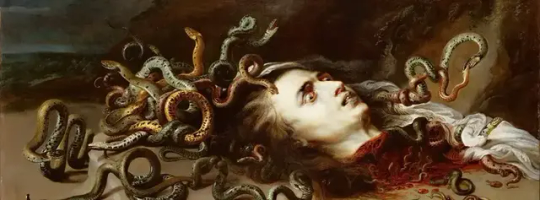
Perseus und Medusa
Perseus ist der Sohn von Zeus und Danaë. Er gehört zu den bekanntesten Helden der griechischen Mythologie. Danaë ist die Tochter des Königs Akrisios.
Diesem wurde prophezeit, dass ein Sohn seiner Tochter Danaë zum Verhängnis werden würde. Da diese durch eine Verbindung mit Zeus den Perseus gebar, versucht Akrisios, Perseus loszuwerden und sperrt Enkel und Tochter in eine Kiste, die er dem Meer übergibt. Allerdings werden sie mit Poseidons Hilfe gerettet und stranden auf der Insel Seriphos.
Dort angelangt, findet sie Diktys, ein Bruder des Königs Polydektes, und lässt sie bei sich wohnen. Allerdings beginnt alsbald der König, Danaë nachzustellen und um ihre Zuneigung zu buhlen, weshalb ihm Perseus, ihr ständiger Begleiter, ein Dorn im Auge ist. Er verlangt, dass er ihm das Haupt der Medusa bringe und hofft, dass Perseus scheitern und dem fürchterlichen Fluch der Gorgo zum Opfer fallen wird.
Allerdings bekommt Athene Wind von diesem Vorhaben, die seit der Verwandlung der Gorgo mit dieser verfeindet ist und unterstützt Perseus bei seiner Aufgabe. Sie überlässt ihm ein glänzendes Schild, das es ermöglicht, jemanden nur durch das Spiegelbild zu betrachten. Demnach zeigt Athene ihm eine Möglichkeit, der Medusa ins Gesicht zu schauen, ohne sofort zu Stein zu erstarren.
Perseus und die Graien
Weiterhin gab sie ihm den Rat, sich zu den Graien zu begeben, die ihm den Aufenthaltsort der Medusa verraten könnten. Die Graien, auch die Gräulichen genannt, waren die Schwestern der Gorgonen. Der Bruder Athenes, Hermes, rüstete Perseus außerdem mit einer diamantenen Sichel aus, die ihm als Waffe im Kampf gegen die Gorgo helfen sollte.
Der Königssohn begibt sich schnellstmöglich auf die Reise, um nach den Graien zu suchen. Als er sie letztendlich an einem See im heutigen Afrika findet, sind diese jedoch nicht bereit, ihm zu verraten, wie er die Medusa finden und töten könne. Perseus begann nun, sein Proviant zu verzehren, woraufhin die Schwestern etwas abhaben wollten. Die drei Dämoninnen teilten sich nur ein Auge und einen Zahn, weshalb Perseus anbot, diese Dinge zu halten, während diese essen sollten.
Als sich die Graien gerade über die Nahrung hermachen wollten, erpresste er die Geschwister und setzt sie somit unter Druck. Er gibt an, ihnen Auge und Zahn erst wieder auszuhändigen, wenn sie ihm die Auskunft geben, wo sich Medusa samt Schwestern befindet. Daraufhin geben die drei Graien nach und verraten dem Königssohn, was er wissen möchte.
Außerdem schicken sie ihn zu den Nymphen, die ihm drei wichtige Gegenstände aushändigen: geflügelte Sandalen, um das Heim der Gorgonen zu erreichen, einen Sack, um das gefährliche Medusenhaupt zu verstauen und eine Tarnkappe, um nach erfolgreichem Kampf den Schwestern der Medusa zu entkommen.
Perseus enthauptet Medusa
Perseus macht sich auf den Weg und kann mithilfe der Flügelschuhe geschwind das Ziel erreichen. Dort angekommen, verkünden unzählige versteinerte Lebewesen, dass er das Ziel erreicht und von den Graien nicht in die Irre geführt wurde. Perseus schleicht sich in die Unterkünfte und sieht, dass Medusa gerade schläft. Mithilfe des Bronzeschildes der Athene kann er sich ihr nähern, ohne Schaden zu nehmen und enthauptet sie kurzerhand mit der Sichel, die er von Hermes erhielt.
Als Medusa von Athene verflucht wurde, war sie von Poseidon in Gestalt eines Pferdes geschwängert worden. In dem Augenblick, als sich das Haupt der Gorgo vom Rumpf löste, entstieg deshalb ihren blutenden Wunden das geflügelte Pferd Pegasus und der kriegerische Riese Chrysaor.
Perseus ergreift den Kopf der Medusa, steckt ihn in den Nyhmphensack und kann Dank der Tarnkappe den Schwestern Stheno und Euryale entkommen.
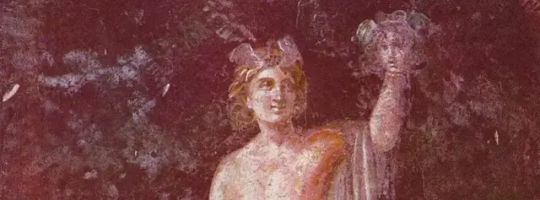
Der Medusa-Mythos in der Kurzübersicht
Medusa, Stheno und Euryale sind die drei Gorgonen und die Töchter der Meeresgötter Keto und Phorkys, die allerdings selbst Geschwister sind.
Ursprünglich galten die Gorgonen als entstellt und missgebildet. Im Laufe der Zeit hat sich das Bild der drei Schreckgestalten allerdings gewandelt.
Medusa, die als einzige der drei Geschwister sterblicher Natur ist, wird sogar eine betörende Schönheit zugeschrieben, die Männern den Kopf verdrehte.
Auch der Meeresgott Poseidon verliebte sich in sie, woraufhin sie von Athene beim Liebespiel ertappt wurden. Diese zürnte verwandelte Medusa in eine Schreckensgestalt.
Perseus, ein Held der griechischen Mythologie, verfolgte die Gorgo aufgrund eines Versprechens gegenüber Polydektes: er sollte, um seine Mutter Danaë vor den Avancen des Königs zu schützen, den Kopf der Medusa erbeuten.
Mit göttlicher Hilfe gelang es Perseus letzten Endes, das Medusenhaupt in seinen Besitz zu bringen. Allerdings endete seine Reise nicht mit der Flucht, sondern führte ihn noch zum Riesen Atlas und zu Andromeda, bevor er die traute Heimat erreichen sollte.
0 notes
Text
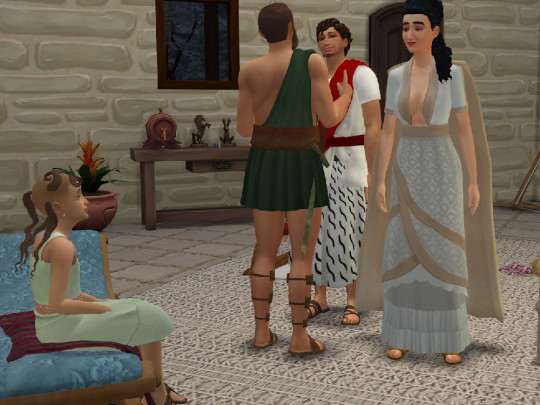

The King of Manthos, the young Mijararos, had payed a friendly visit to King of Selinódasos, the wealthy King Akrísios, who was also married to Mijaros' aunt, Queen Laonome. This was a courtesy visit, but with an agenda. They had an important issue to discuss: To strengthen the ties between the two kingdoms through an agreement on marriage.
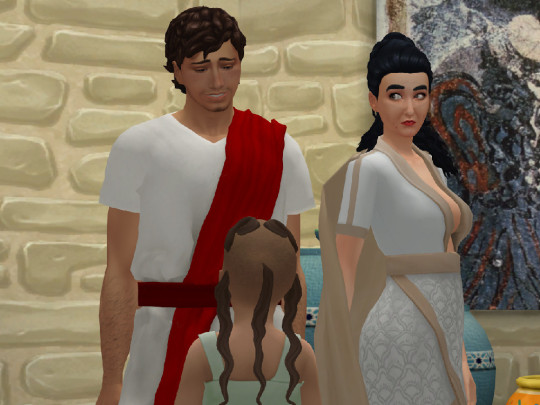
When seeing his potential wife, King Mijararos was quite startled.
- But she is still a child! I don't think this is a good idea.
- Well, you knew her age already, didn't you? She is almost ten winters.
- When grandmother said "marry your cousin" I didn't realize she meant Princess Nikh. I always assumed she meant Princess Euthalia. This is not what I had prepared for.
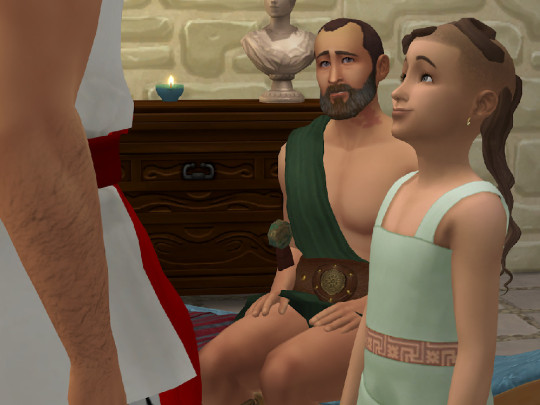
- Princess Euthalia is already spoken for. We have already made an agreement with the Kingdom of Koiláda Chalkoú.
- I don't mind cousin Mijarare, Nikh said, I know you will be a kind husband. And also grandma and uncle Heraklis will be there, so I'm not afraid.
- Thank you for that, Nikh my dear, but it's not that easy. There are expectations that you simply can't fill.
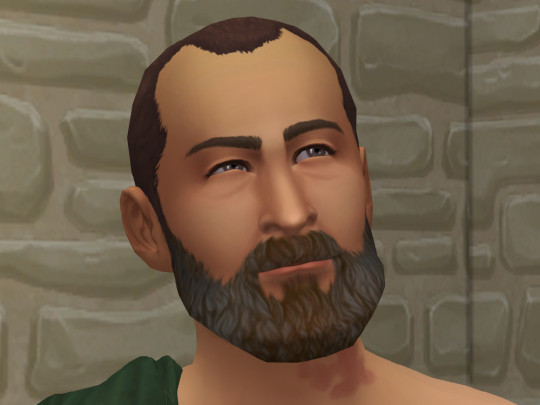
- There would be a long period of engagement of course, at least three winters. The important thing now is the agreement, not the fulfillment.
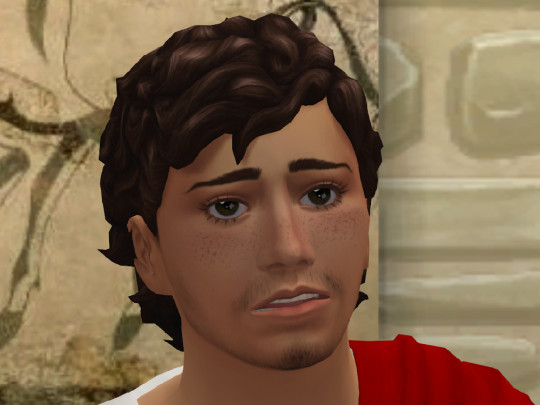
- I hear you uncle, and I respect that, but I ... I just can't. The age difference bothers me, and it will probably do so for many years. The gap is too large. I'm sorry, I will just have to decline.
- Mother will not be pleased, Laonome said. The whole family will be so disappointed.
- It can't be helped aunt Laonome, this is impossible. I will have to look for a wife elsewhere I'm afraid.
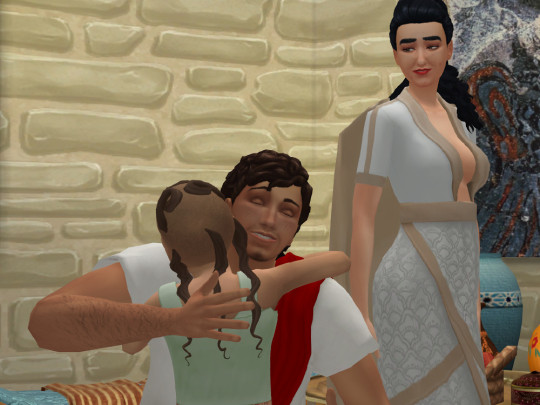
- Is it my fault cousin Mijarare? Am I too ugly? You don't love me?
- Of course I love you! Just not in a husband-and-wife-way, okay? Besides, you are the prettiest girl in the whole kingdom and any young man will be proud to marry you, as soon as you get a bit older.
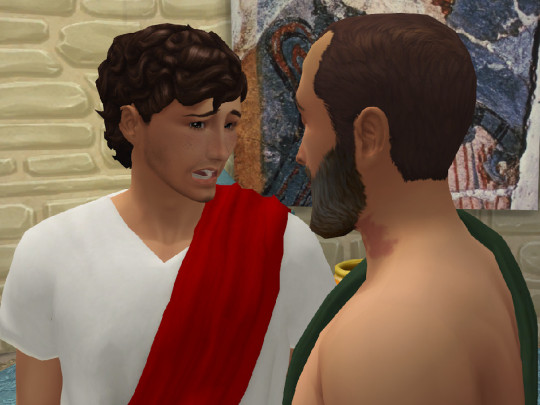
- I'm really sorry uncle. But might I suggest that you consider my brother Linos for Nikh? They are closer in age, and he is second to the throne.
- I was hoping for a more prestigious marriage, so I don't know. It's not what I had planned for my daughter. This is most unfortunate.
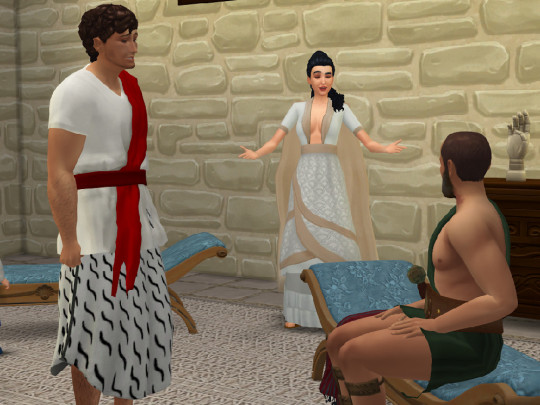
- My men! Laonome cut in. We must be able to solve this somehow.
- I don't see how, Mijararos answered.
- Not me neither, Akrisios agreed.
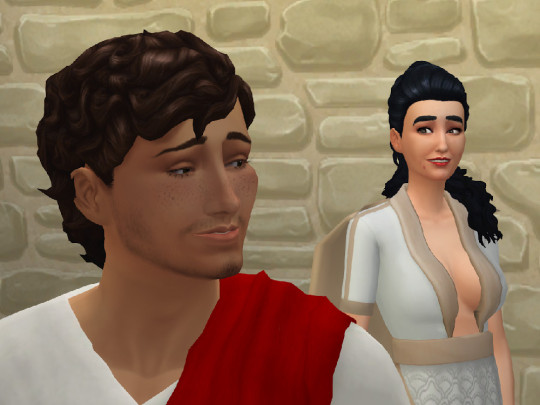
- Dear nephew, would you consider marrying Euthalia, if she wasn't spoken for?
- I would. We are about the same age at least.
- So if we can reach an agreement with the King of Koiláda Chalkoú to let her go, would we have an agreement? Even if the dowry would be lower?
- Why should it be lower?
- Because we would have to offer something to the King of Koiláda Chalkoú. As a compensation.
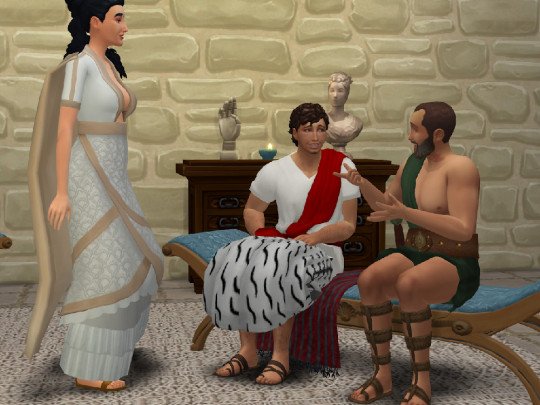
- Do you think he would be willing to discuss it?
- It's worth a try.
- And Euthalia, how would she feel about it, would she consider living at Manthos palace?
- Oh, absolutely. She wasn't very keen on going to Koiláda Chalkoú, that's for sure. She's been sulking for weeks now.
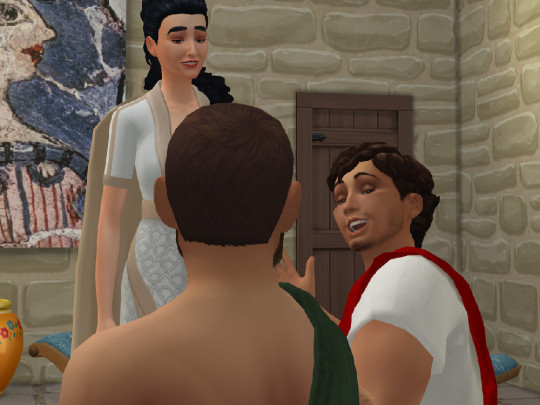
- Ironically, that sounds promising. So maybe we have an agreement then?
- Provided the King of Koiláda Chalkoú agrees; yes!
- When I come home, Mijararos added, I will suggest that the house of Manthos and grandmother assists with the compensation, just to make sure he will think it's worth it.

- You make it sound so easy, Laonome laughed.
- What?
- "I will suggest that grandmother assists". That woman is not known for accepting any suggestions easily. Unless it's in her interest.
- It's just a matter of making her realizing just that, it is in her interest. I know what I will have to do.
.
Previous (Chapter 10) | Index | Character overview | Next
#KyriaT#KyriaT-stories#Chapter Eleven#ts4 story#sims 4 story#history challenge#ts4 history challenge#Generation 2#Early civilization sims#Early civ sims#Once Upon A Time#The First Ones#King Mijararos#Queen Laonome#King Akrisios#Princess Nikh#simblr
22 notes
·
View notes
Text




Prince Philokratis Akrisios
GENDER - Male
AGE - Child
Prince of Selinódasos
ASPIRATION - Artistic Prodigy
TRAITS: Sensitive, Language Savant
SIGN: Sagittarius
PARENTS - Laonome Amphytriona and King Akrisios I
PARTNER - None
CHILDREN - None
Download: Not available
Story: Once Upon A Time - The first ones
Family tree: The first ones
CHILD: He has the mind of an artist. He observes, he transforms, he recreate. Instinctively he processes his grief and loneliness to art. After the death of his mother he is a bit more silent, but a wonderful personality, he really is.
TODDLER: He still prefer his mother before anybody else, but then, she IS his mother, right? He already speaks two languages fluently which is amazing. And there seem to be quite a personality behind those innocent blue eyes.
INFANT: He is very attached to his mother, and he is a bit fearful of strangers. Hopefully it will change with time, because otherwise he will have a hard time as a royal person.
#Story character#Philokratis Akrisios#Generation 3#side character#Royal Family#Prince Philokratis#Once Upon A Time#Early Civilization#Royal family of Selinódasos#Prince of Selinódasos#chapter 12#KyriaT
0 notes
Photo
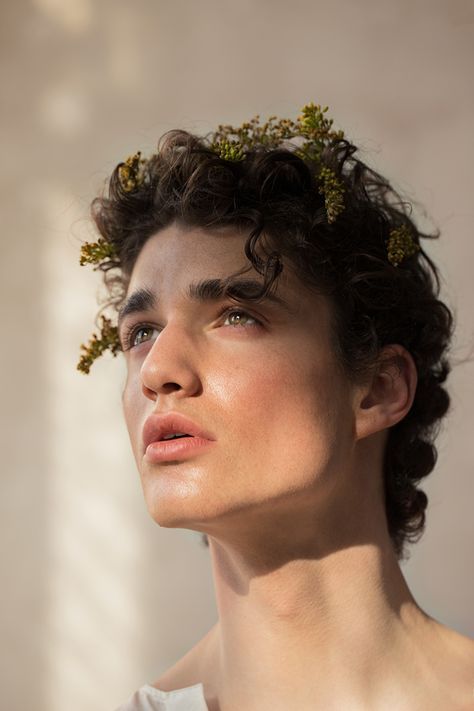
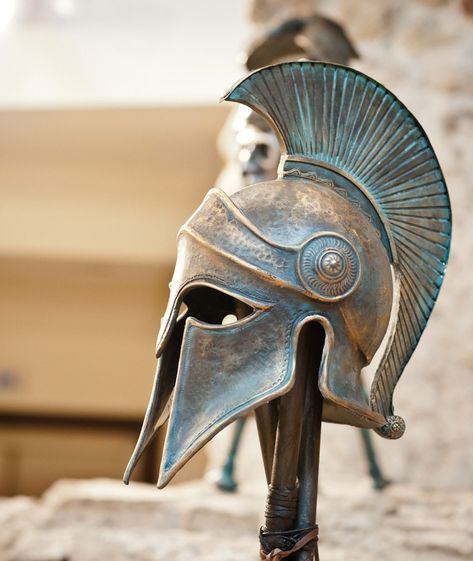

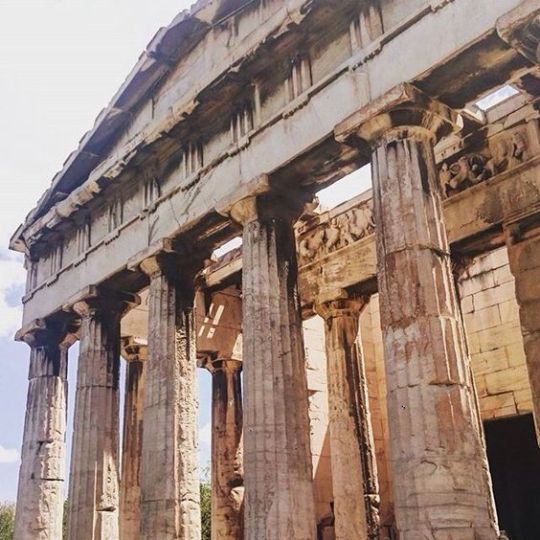
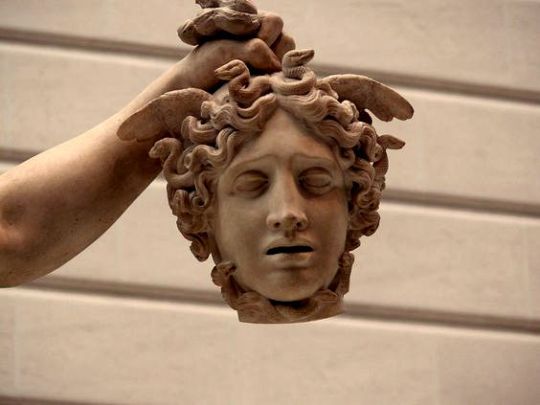
Περσευς
Perseus was one of the most celebrated heroes of Greek mythology. He was the son of the Argive princess Danae who was locked away in a bronze chamber by her father Akrisios who lived in fear of a prophecy that he would one day be killed by her son. The god Zeus, however, infiltrated her prison in the guise of a golden shower and impreganted her. When Akrisios discovered the child, he placed the two in a chest and set them adrift at the sea. They were carried safely to the island of Seriphos where they were offered refuge by the kindly, fisherman Diktys. When Perseus was fully grown, King Polydektes commanded he fetch the head of Medusa. With the help of the gods, Perseus obtained winged sandals, an invisible helm and a magical sword. He then sought out the ancient Graiai and stealing their single eye compelled them to reveal the location of the Gorgones. Perseus approached Medusa as she slept and beheaded her with eyes averted to avoid her petrifying visage. On his journey back to Greece, Perseus came across the Ethiopian princess Andromeda chained to a rock as a sacrifice to a sea-monster. He slew the beast and brought her with him back to Greece as his bride. Perseus was the ancestor of the royal houses of Mykenai, Elis, Sparta, Messenia, and distant Persia. His most famous descendant was Herakles.
#perseus#heroe#Greek Mythology#danae#akrisios#zeus#diktys#polydektes#medusa#graiai#gorgones#gorgon#greece#andromeda#mykene#herakles#myth#mythology#greek
425 notes
·
View notes
Text
This is one of the aspects that I find fascinating about Perseus, and makes him different compared to other heroes. He holds respects even for his enemies and shows that in different ways. In one of the versions where he killed Acrisius by accident he gave the kingdom to Megapenthes ("great mourning"), son of Proetus, and took over Megapenthes' kingdom of Tiryns: "When he understood that the oracular promise had been fulfilled, he buried Akrisios outside the polis, and then, too ashamed to enter Argos and claim the estate of the man who had died because of him, he went to Proitos' son Megapenthes at Tiryns and made a trade with him, handing him Argos. So Megapenthes ruled the Argives, and Perseus ruled Tiryns, as well as Mideia and Mykenai, both of which he walled." Dude was literally ashamed of taking the throne of a man he killed, despite the fact that he was next to the throne AND that his grandfather tried to kill him back when he was little (and by extension he has good reasons to hate him).
Then there's the war between him amd Dionysus, where he buried the women who fought alongside the god and even gave separate graves to those of higher ranks: "The tomb near this [the temple of Zeus Nemeios at Argos] they call that of the maenad Khorea (Chorea), saying that she was one of the women who joined Dionysos in his expedition against Argos, and that Perseus, being victorious in the battle, put most of the women to the sword. To the rest they gave a common grave, but to Khorea they gave burial apart because of her high rank."
Two of the few times when he proved himself to be surpringly ruthless was when he petrified Phineus and Polydectes, respectively. In both cases, both of them had few to no redemptive traits, and what is quite interesting is that the main reason why he killed them was because both of them hurted someone he cared for. Before turning Phineus into stone, he told him that he made this decision partly because this was the only way Andromeda could look at his face without being afraid or disturbed, which tells you a LOT about what type of man he was: "You shall be seen thus always, in the palace where resides my father-in-law, that my surrendered spouse may soften her great grief when she but sees the darling image of her first betrothed." And then there's Polydectes, whom Perseus petrified for obivious reasons.
Also, the fact that pretty much everyone liked him -Even Hera!- and those who didn't were usually vile scumbags tells lots of things about his character. While being far from perfect, he shows a human decency and sense of duty that make him conventionally heroic even by modern standards. The fact that Heracles and Achilles receive more attention and simpathy than him is honestly ironic.
Pausanias, Description of Greece 2. 21. 7 :
"Not far from the building in the market-place of Argos is a mound of earth, in which they say lies the head of the Gorgon Medousa (Medusa) [...] In Argos, by the side of this monument of the Gorgon, is the grave of Gorgophone (Gorgon-kilIer), the daughter of Perseus."
Apparently she wasn't only the first woman to marry twice; she was also buried nearby the monument of the Gorgon and not far away from the head of Medusa. I know that her grave might've been chosen due to her name, but the mere fact that she received this type of honor makes me wonder if she was Perseus' favourite child (which would quite funny considering the fact that he had seven sons).
18 notes
·
View notes
Text
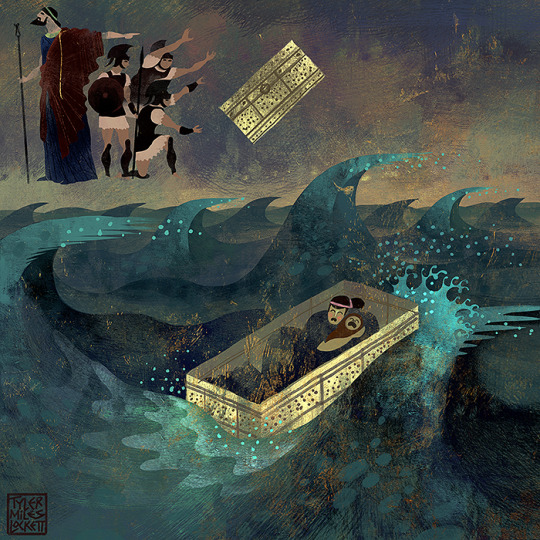
Castaways (#2 in my Quest for the Gorgon head series)
After the miracualous conception, Danae gives birth to a demi-god son she names Perseus. King Akrisios, not believing the child to have been born of Zeus, and to punish her, places her and the child into a chest and casts them into the sea. the pair find safe passage to the shore of Seriphos. Here they are rescued upon the coast by a fisherman, Diktys, who raises Perseus. But Diktys brother is king Polydektes, who, becoming enamoured with Danae, seeks to remove the protective Perseus from his path of desire.
What I find fascinating about this plot point is it being an early example of the "child surviving sure death to fulfill destiny as the chosen one" archetype. From the Book of Exodus (600 B.C.) we have a similar structure of abandonment, rescue from water, and adoption by royalty. In Ancient Egypt, the Pharaoh ordered the slaughter of Israelite children, so Moses' mother placed him within a basket, and cast him off into the Nile, to later be discovered and adopted by the Egyptian royal family.
It also brings to mind another similar structure used by Sophocles in his famous tragedy "Oedipus Rex." (429.B.C.) Queen Jocasta, hearing a prophecy that her son will kill his father (her husband) gives the baby away to a shepherd to leave out exposed on a mountain side, but the shepherd saves the baby's life, thus allowing Odepis to live on to fulfill the prophecy. But that's a tale for another time.
Like this art? It will be in my illustrated book with over 130 other full page illustrations coming in June to kickstarter. to get unseen free hi-hes art subscribe to my email newsletter
Follow my backerkit kickstarter notification page.
Thank you for supporting independent artists! 🤘❤️🏛😁
#greekmythology#greekgods#pjo#mythology#classics#classicscommunity#myths#ancientgreece#classicliterature#classicnovels#tylermileslockett#greekmyths
45 notes
·
View notes